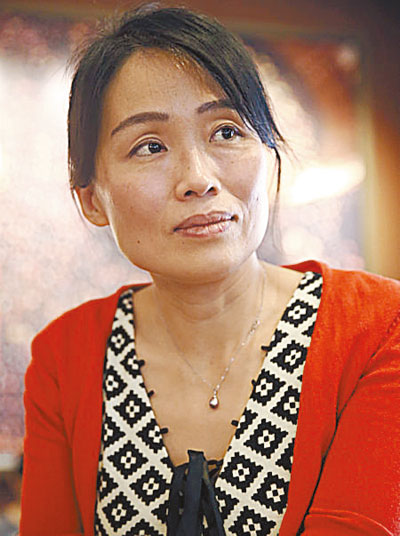 WILLIAM SHAKESPEARE — in his sentimental and philosophical way — was a great lover who was also afraid of darkness, Chinese translator Ye Xiumin said. Reading and translating the Bard’s sonnets she realized how much of a poet he was, in addition to being one of the world’s finest playwrights. “I see how loyal he is to the ‘fair youth,’ that he has hundreds of ways to praise the person’s beauty without repetition of phrases. I also see his hesitation in expressing his love because of the age gap between them,” Ye told China Daily at a cafe in Beijing, speaking of one of Shakespeare’s sonnets. According to historians, the Bard dedicated many of his sonnets to a young man and a few to a young woman. Along with the rest of the world, China is marking the 400th anniversary of Shakespeare’s death this year with a series of cultural events. Ye will release her book dedicated to Shakespeare on World Book Day this Saturday, she said. She hopes to help Chinese readers understand Shakespeare’s sonnets better through “Across 400 Years to Reach You,” her well-illustrated book that not only translates his words but also interprets their meaning. The book has been published by China Youth Publishing Group. “I want to bring the sonnets’ beauty to beholders so that non-English-speaking readers can see Shakespeare as a poet, too,” said Ye. She is also challenging the notion that poetry can’t be translated. To critic Zhang Yimeng, the meanings behind the Bard’s sonnets have been lost on many Chinese readers due to translation issues. There have been a few successful Chinese translations in the past century, but Zhang says more needs to be done. “The dozen or so Chinese translations were mostly done by academics (instead of poets), whose literal translations were faithful to original text in meaning and format but lack a poetic mood and aesthetic elegance — the very features that make poetry popular and memorable.” Zhang sees Ye’s translations as being more successful because she adopted the approach of paraphrasing and captured key elements of the original sonnets — the theme of beautiful and undying love, the elegance of language and the enchanting mood or atmosphere created by them. A Shakespeare fan commented on Douban, a Chinese online platform, that Ye’s translation brings readers closer to the Bard’s “mood of love” compared with earlier versions that sounded more like an elderly man recalling his younger days. Prior to getting her book published, Ye had posted her translations on social media. Having received positive feedback, she went ahead with presenting it to a broader readership. For every sonnet she translated, she also offered an essay alongside recording her thoughts and ideas. Her online translations that mix modern Chinese, especially catchy phrases, with expressions in ancient Chinese poems helped take excerpts from the upcoming book to her friends and beyond. So when she launched a crowd-funding request to publish the book, she got the task done in two days, thanks to her already existing fan base. Born in East China’s Fujian Province, Ye majored in English at Beijing’s University of International Relations. She is also an avid reader who has read many genres of poetry since she was very young. Before starting to translate Shakespeare, she worked as a professional translator in the Chinese navy for 16 years. A single mother of a teenage boy, Ye spends long hours commuting. “The subway is a good place, as I always revise my stanzas six to seven times,” she says of her time on trains. Ye is not afraid of possible questions that could be raised about her version of Shakespeare’s sonnets. American poet Robert Frost is her next project. (China Daily) | 
